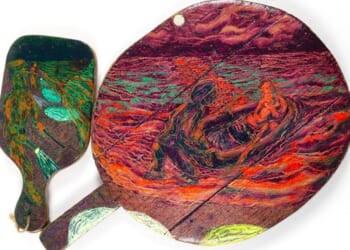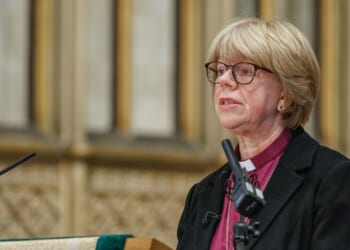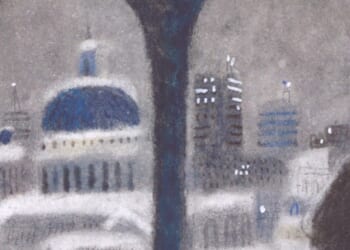The anniversary of the birth of Mose Allison arrives this week on November 11. Born in Tippo, Mississippi, he was naturally musical and and naturally witty. Combining a taste for jazz and blues, he was a sort of American music all-star. I particularly appreciate the wit of what manifests as occasional bitterness in his songwriting, though he could do optimism too. Let’s take a brief look back at an artist who was appreciated by his peers but should otherwise be better known.
Ben Sidran is an Allison acolyte. He credits the song “City Home” with turning him on to Allison. When Allison died in 2016 at the age of 89, Sidran told Jazz Times in an email:
I first heard Mose in 1960 on the album The Transfiguration of Hiram Brown with the song “City Home,” which was about a young man in a small town dreaming of the big city and that was my story too. Then I went back and found the Prestige stuff, especially Creek Bank, with “If You Live” and “Seventh Son,” and I was on my way. Hearing his piano paying – simple, direct, swinging – and of course his vocals – cool, funky and so intelligent – opened a path for me and many others, including many growing up in Great Britain, like Georgie Fame and Van Morrison. Before I heard Mose, I had been listening to Horace Silver and Jon Hendricks but it never occurred to me that you could put it all together like he did: sing like a musician, write hip but plain spoken lyrics and groove like a blues man. There was never anyone else like Mose – he was a complete original, deceptively simple, like Monk. To me that’s part of his legacy: simple on the surface, many layers deep underneath. Years later, when I got to spend time with him producing his records for Blue Note, I found that it was not an attitude, it was a way of life. He never tried to be hip or anything other than who he was, which of course was the hippest thing in the world.
Here is “City Home” from the Transfiguration album (1960). I went to see Sidran at the Dakota on September 2. He is still carrying the torch for Allison in his playing and vocals. It is uncanny.
To the extent many of us ever heard of Allison, we might have noticed he was the guy who wrote the song The Who recorded as “Young Man’s Blues.” Originally titled “Back Country Suite: Blues (a.k.a. ‘Young Man’s Blues’)” (1957), the original went like this.
Percy Mayfield wrote “Lost Mind” on Allison’s Local Color (1958). You can hear how Mayfield influenced Allison’s songwriting.
Allison gave pessimism a wry twist on the title track of I Don’t Worry ‘Bout a Thing (1962).
I love the title of Mose Alive! (1966). Of his own compositions on the album, “Smashed” is a highlight. Paul Motian is on drums.
He thought funny, as you might deduce from “Your Molecular Structure” on I’ve Been Doin’ Some Thinking (1968).
Ditto on “Monsters of the Id,” from Hello There, Universe (1970). The instrumental accompaniment comments on the lyrics.
“Your Mind Is On Vacation” is the title track of his 1976 album. This is something like an eternal verity.
His songs have been covered by many artists who appreciate his work. Bonnie Raitt worked up a deeply sympathetic cover of “Everybody’s Cryin’ Mercy” on Takin’ My Time (1973). Taj Mahal accompanies her on the harmonica.
Van Morrison recorded the tribute album Tell Me Something (1996) with Georgie Fame, Ben Sidran, and Mose himself. This is the title track of an album with the timely reminder whose implicit message was Mose Alive!
Diana Krall covered Allison’s “Stop This World” on her 2004 album The Girl In the Other Room. Christian McBride is on double bass.
Let’s go out with the Who’s cover of “Young Man Blues.” It’s a song whose time seems to have come around again.

















